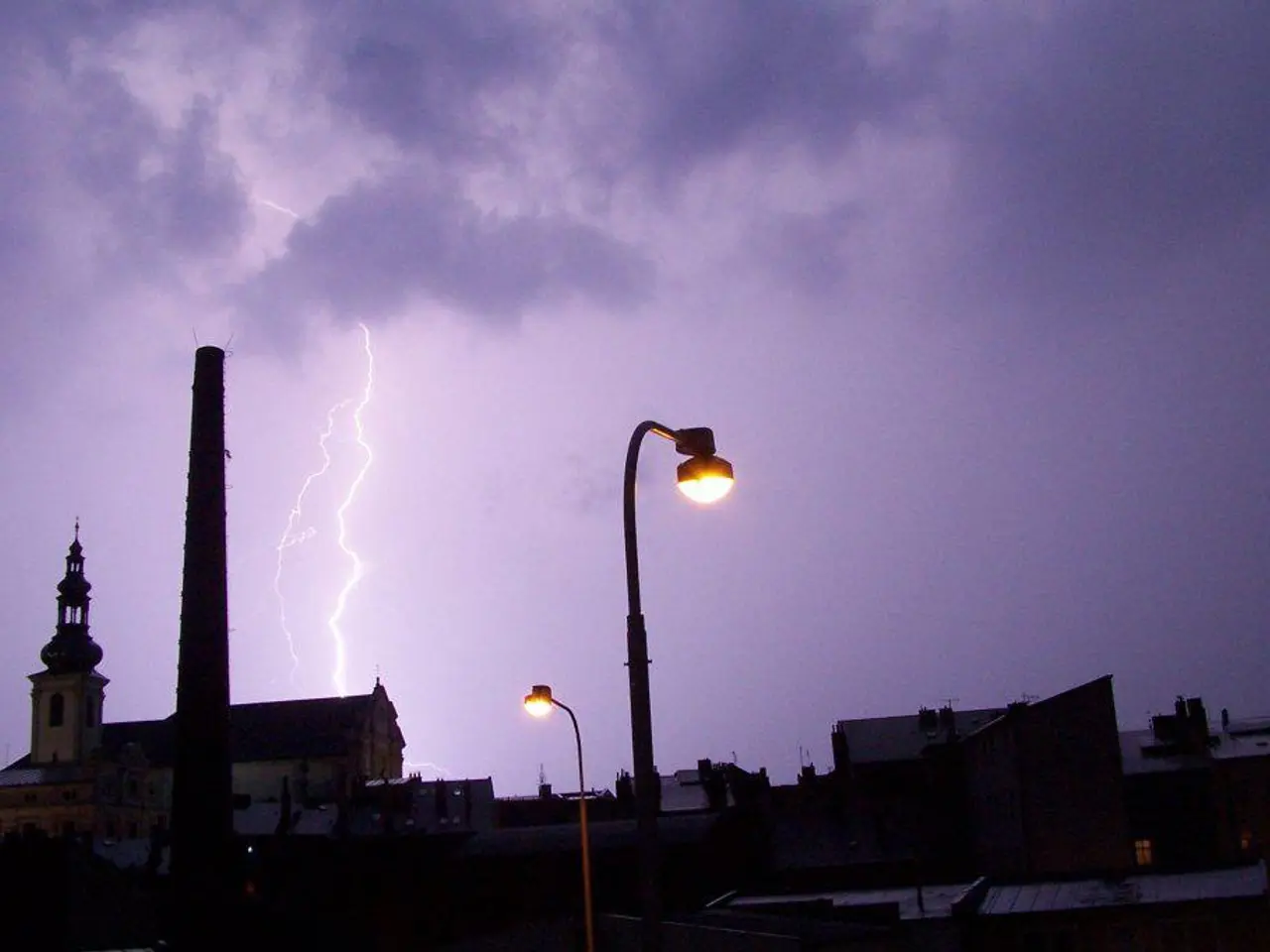Heat advisory issued for excessive heat-related health risks - Heat advisory issued due to impending high temperatures leading to potential heat-related health issues.
Heat Warning Issued for Southern Baden-Württemberg: Stay Safe and Beat the Heat
A heat warning has been issued by the German Weather Service (DWD) for southern Baden-Württemberg, including Stuttgart and Lake Constance, due to the anticipated high temperatures. This warning is particularly important for vulnerable groups such as the elderly and care-dependent individuals who are at a higher risk in the heat.
During heat stress warnings, it's crucial to follow some general guidelines to stay safe and healthy. Here are some recommended behaviors and precautions:
- Stay hydrated: Drink plenty of water regularly, avoiding alcohol and caffeine which can cause dehydration.
- Avoid strenuous outdoor activity during peak heat: Limit physical exertion, especially between late morning and late afternoon when temperatures are highest.
- Seek shade or air-conditioned environments: Stay indoors or in cool places as much as possible to prevent overheating.
- Wear lightweight, loose, and light-colored clothing: This helps heat dissipation and reduces heat absorption.
- Use sun protection: Apply sunscreen and wear wide-brimmed hats and sunglasses to protect against UV radiation.
- Care for vulnerable individuals: Check on children, elderly, people with chronic illnesses, and pets frequently as they are more susceptible to heat stress.
- Cool down: Use damp cloths, cooling sprays, or take cool showers or baths to help regulate body temperature.
- Recognize symptoms of heat exhaustion or heat stroke: Symptoms include headache, dizziness, nausea, rapid heartbeat, and confusion. Seek medical help immediately if these occur.
Given the urban nature of areas like Stuttgart and the lakeside environment of Lake Constance, residents and visitors should also consider local factors such as urban heat islands and humidity when implementing these precautions.
For the most authoritative and localized guidance, checking the official German Weather Service (DWD) website and local health authorities' instructions during a heat stress warning is advisable.
This weekend, Baden-Württemberg is expected to experience a genuine summer with mostly clear skies and temperatures ranging from 26 to 29 degrees. While no warning for extreme heat stress has been issued for the region, as temperatures do not exceed 38 degrees, it's still important to keep your body cool, ensure adequate fluid and electrolyte intake, and wear light, airy clothing.
Overnight from Saturday to Sunday, temperatures are expected to drop to 18 to 13 degrees. The DWD advises to avoid the heat and not to go outside in the afternoon during the heat stress. The affected region includes the southern Upper Rhine Valley and Lake Constance.
It's worth noting that the DWD issues a warning for severe heat stress when the perceived temperature exceeds 32 degrees, and for extreme heat stress at temperatures above 38 degrees. However, the warning for severe heat stress does not apply to the entire state of Baden-Württemberg.
Lastly, the DWD also advises to avoid alcohol and to wear a hat. If the night is too warm, sleep quality can deteriorate, leading to additional stress during the day. Temperatures in the Odenwald could rise up to 29 degrees, while in Breisgau, they could reach as high as 35 degrees.
Stay safe and healthy during this heat wave by following these guidelines and checking the latest updates from the DWD and local health authorities.
- In light of the heat warning issued by the DWD for southern Baden-Württemberg, it's essential to consider the community policy that promotes the well-being of vulnerable groups, including elderly and care-dependent individuals, during extreme weather events such as heat waves.
- Energy policy plays a crucial role in managing the impact of weather events like heat waves. For instance, implementing comprehensive urban planning to reduce urban heat islands and promote energy-efficient buildings can help reduce energy consumption during high temperatures.








